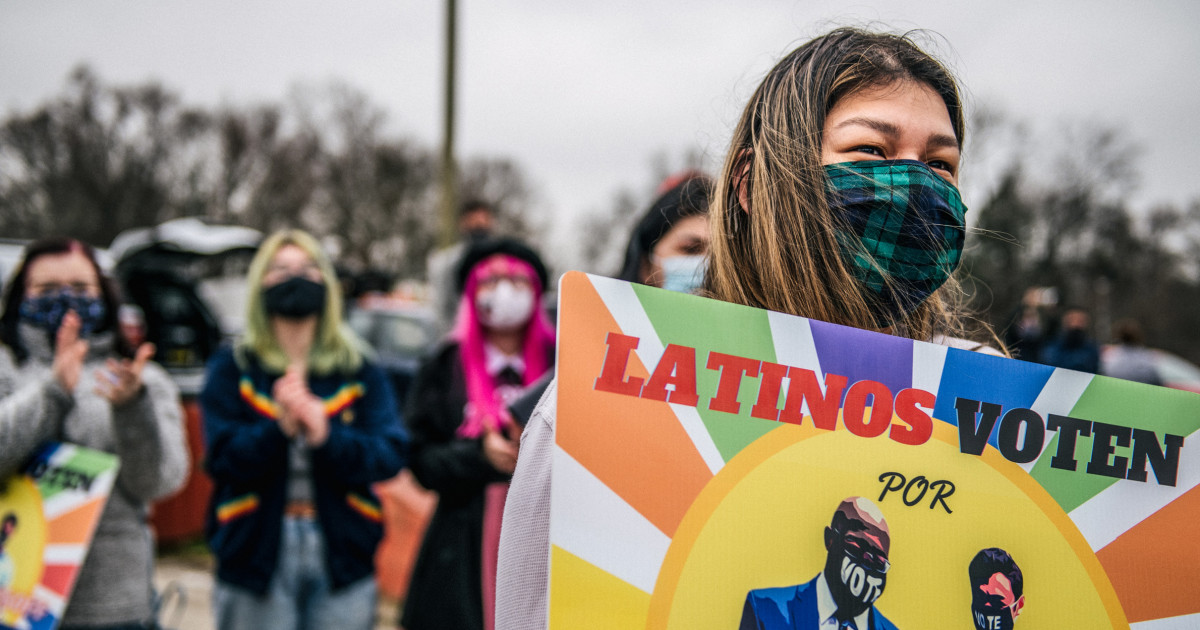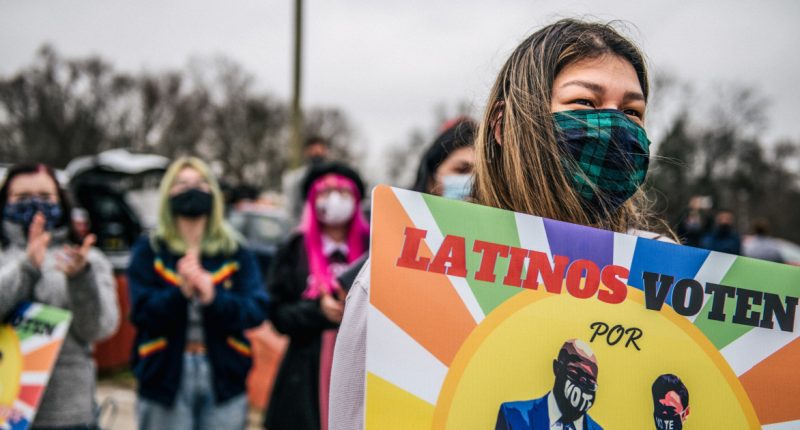
With narrow margins more commonly determining election victories, Latino voters in battleground states like Georgia stand to become a consequential voting bloc influencing contested races in the 2024 presidential election.
A new survey commissioned by the Georgia Association of Latino Elected Officials, a nonprofit focused on civic engagement, is providing a glimpse into how to turn out the growing electorate.
The top five issues concerning Latinos in Georgia are the rising cost of living and inflation, improving wages and creating more jobs, lowering the cost of health care, protecting immigrant rights, and gun safety policy to address mass shootings, according to the survey first obtained by NBC News and released to the public Wednesday.
“The impact of inflation and the lack of significant wage growth within the Latino community is something that is top of mind and needs to be on candidates’ minds,” Jerry Gonzalez, CEO of GALEO, told NBC News. “For example, minimum wage is really low in Georgia. Why does it continue to be?”
He added that Georgia is among the 10 states that have not expanded Medicaid coverage, which would allow more families to obtain health care access.
The survey also found that women’s reproductive and abortion rights, affordable housing, and climate change are important to Latinos in the state.
The survey was conducted by BSP Research, a Democratic firm that often conducts polls on Latino voters, in September. Analysts spoke to 500 Latino adults in Georgia in English or Spanish, and the results were weighted using known demographics data, mostly from the U.S. census and the American Community Survey.
A growing electorate with a voting track record
When GALEO started two decades ago, there were about 10,000 Latinos registered to vote, Gonzalez recalled.
Now, more than 400,000 Latino voters are estimated to be registered to vote, making up about 5% of all voters in Georgia. While small in percentage, they can turn out to be a deciding voting bloc in races won by small margins, or crucial to building coalitions with other minority voters in the state, according to the survey.
Latino voters in Georgia are mostly concentrated in the Atlanta metropolitan area. An overwhelming majority, about 88%, of these registered voters are considered to be “active,” meaning they voted in the last two elections, according to the Georgia secretary of state’s office.
“You add to the mix that there’s about 20,000 children of immigrants that become eligible to register to vote every year in Georgia. You add that there is a high percentage of folks that are becoming naturalized citizens every year in Georgia,” Gonzalez said.
With a 1.1 million population, Latinos are now the third-largest racial or ethnic group in Georgia, according to the 2020 census.
“The road to the White House goes straight through Georgia, and Latinos are at the center of it,” Gonzalez said, adding that a potential exists for Latino voters to be crucial in deciding competitive congressional districts and some legislative districts as well.
Despite Latinos being active voters in the state, Georgia is still “a hard state to vote in,” Gonzalez said, emphasizing growing restrictions on absentee ballots and lack of language access.
Latino voters’ view on this issue was reflected in the survey, with 84% of those surveyed supporting a new voting rights act ensuring all people can vote without barriers.
They also voiced overwhelming support, between 80% to 92%, for legislation providing in-state tuition for noncitizens, making housing more affordable and protecting renters’ rights.
Latino voters in Georgia have outperformed national Latino voter participation rates in recent elections, according to Gonzalez, especially in counties that were doing significant work in this regard.
“So it will be decisive come election cycle,” Gonzalez said.
For more from NBC Latino, sign up for our weekly newsletter.
Yet when it comes to voter outreach, the survey found only a third of Latinos reported being contacted by a political party or organization and asked to register or vote.
“If they don’t reach out, it’s their own peril,” Gonzalez said of political parties and campaigns. “Our community does turn out to vote in strong numbers.”
Source: | This article originally belongs to Nbcnews.com










